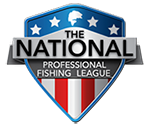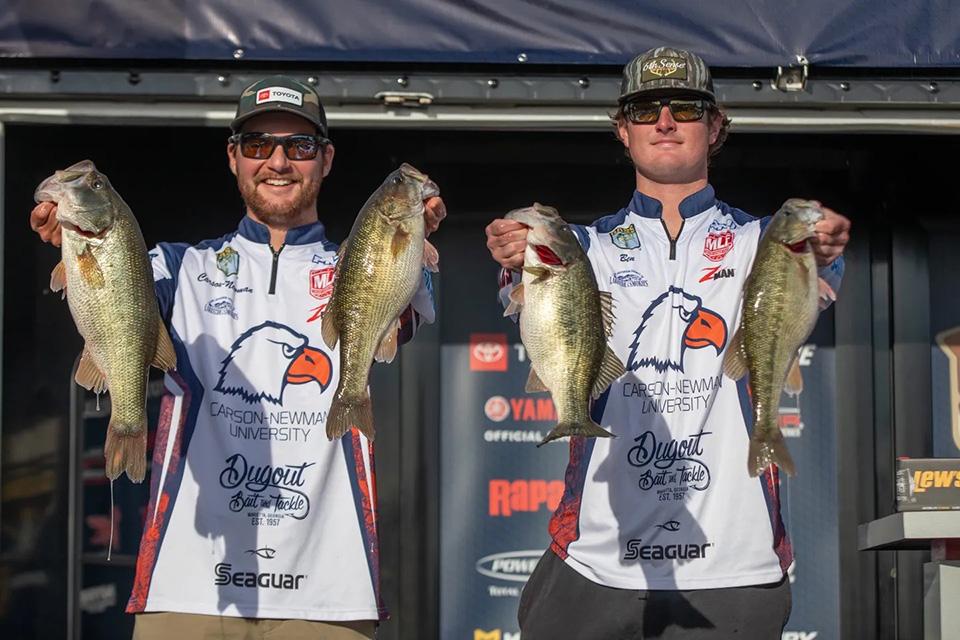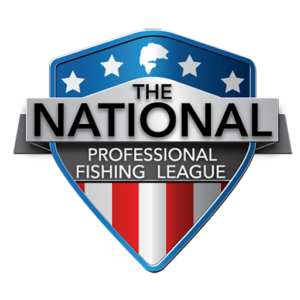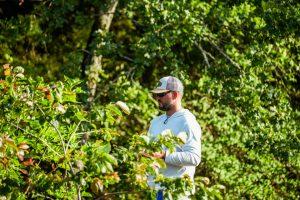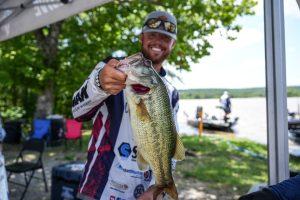Story by Hunter Sales
In this week’s article, I want to address something I spend a ton of time on as a college fishing coach. The Carson-Newman University fishing team has 34 anglers and one of the best ways to elevate their performance is through making sure they are properly paired. This is something that could benefit any team tournament anglers.
Today I’ll dive into the importance of getting these pairings right, what happens when they’re wrong, and the process we use to determine pairings.
The primary components of a successful team pairing are trust, mutual respect, similar work ethic, and—finally—chemistry. Trust and mutual respect go hand in hand, as they both relate to having confidence in your partner. This can mean having confidence that your partner will show up prepared, confidence in your partner’s ability to make decisions, and confidence that you will both be doing everything possible to make your team successful.
Similar work ethic is important whether that work ethic is exceptional or just average. We see a lot of issues when there are disagreements about how much time should be spent pre-practicing, doing tackle prep, and even how long anglers stay on the water during practice. Over the years we’ve seen teams have success with varying levels of intensity during practice. While I certainly expect our anglers to outwork the competition, I have learned that there are individuals who perform better spending less time on the water and more time doing tackle prep, map study, or simply getting in the right frame of mind. This is a privilege that you earn by demonstrating that you possess an internal understanding of what it takes for you to be successful, but partners must be in agreement about how to spend their time.
Chemistry in the boat is something that most people assume is the primary driver for who should fish together. There is a natural desire to fish with someone who you get along with and who has the same fishing style as you. If you fish the same local lakes each week, this may work, but we’ve seen greater success from partners that have wildly different fishing styles. I can think of at least two specific examples of teams that really didn’t get along but always found themselves in the top 10. They were able to overcome their different styles and personalities because they respected each other’s abilities.
If a shallow water specialist and a “scoper” are paired together and can approach each tournament based on the way the lake is setting up, they can succeed anywhere in the country. Chemistry is important, but it’s a bonus and not the primary reason to pair anglers together.
Early in my coaching career, I can think of many examples of anglers being placed in the wrong pairings. The most glaring example was when a sophomore angler found himself in need of a partner after circumstances left him without a partner for the spring semester. This young angler had an excellent freshman season, and I considered him one of the top talents on our team going into his sophomore year. Without time to go through our process of selecting partners, I was forced to make a quick decision. I opted for him to fish with one of our most talented freshmen anglers despite knowing they were both Type A personalities that liked to be in control. I hoped that they could learn to trust each other’s abilities and give us another high-level boat.
What transpired was nothing short of a trainwreck season for the two of them. They were in constant disagreement over how to approach a lake and unable to fully trust and support the other’s decisions. They had a year we’d all like to forget, missing every qualifying cut. The following fall, we had time to re-evaluate our pairings and these anglers both ended up with different partners. It was incredible to see how quickly they rebounded and found success again. They ended up being two of our top boats independently…and they’re now great friends.
Our pairing process starts as soon as anglers get to campus in the fall. We have weekly intersquad tournaments in which anglers fish with someone new each week. For someone who already has a partner, these events serve as an excellent way to learn new skills and build trust with teammates. For someone who does not have an established partner, these events are like speed dating.
After each week, I spend time asking each angler how they felt about the pairing. Throughout the course of several weeks and by looking at upcoming events, we’re usually able to have anglers placed in pairings that will last multiple years and help them see success.
If you’re a team tournament angler, I hope this will help you work through finding a partner to be competitive with. Don’t shy away from someone with different skillsets than you have. It can be a great way to learn and be competitive in situations where you would typically struggle. If you have mutual respect and work to build trust, chemistry and success will often follow.
Hunter Sales – NPFL Angler Profile
Follow, Like & Subscribe – Instagram – Facebook – YouTube
